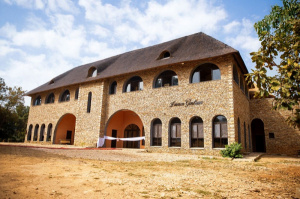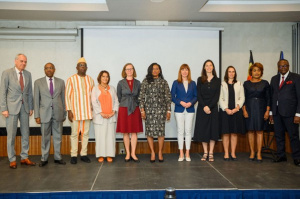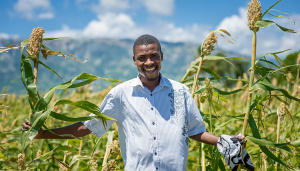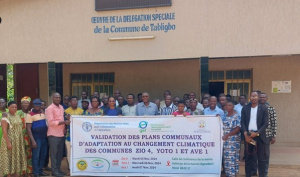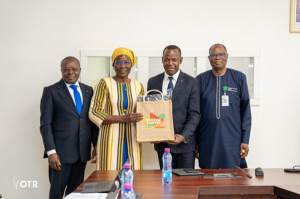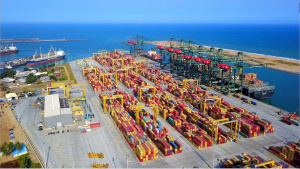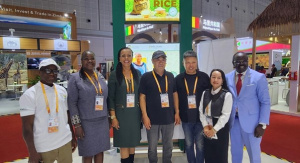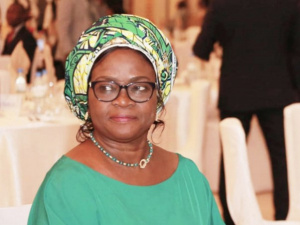Togo First
Togo Launches Tech Immersion Plus Program for SMEs
The Ministry of the Digital Economy and Transformation in Togo has launched the Tech Immersion Plus (TIP) program to enhance the digital skills of small and medium-sized enterprises (SMEs). The program will make beneficiaries more competitive by providing intensive training and personalized coaching.
Vous êtes une TPME togolaise souhaitant intégrer le digital dans vos activités, ou une startup proposant des solutions numériques pour les TPME ? Rejoignez le programme Tech Immersion Plus et boostez votre compétitivité !
— Ministère de l'Economie Numérique ?? (@NumeriqueTG) November 11, 2024
Les candidatures féminines sont fortement encouragées… pic.twitter.com/jRREdfZk66
Set to run from November to December 2024, the program will target two groups. The first group, non-digital SMEs, will learn to use digital tools. The second group comprises startups that develop innovative solutions for SMEs. The startups will have opportunities to showcase their products while building connections with local businesses.
Overall, the program seeks to help SMEs seamlessly integrate digital technologies into their business practices. The program is backed by the German Development Cooperation (GIZ Togo).
Interested SMEs have until November 17, 2024, to register for the program. The latter will be carried out in various regions of the country.
Ayi Renaud Dossavi
Togo: First International Resourcing Center Opens in Kara
Togolese President Faure Gnassingbé inaugurated his country’s first international resourcing and ecotourism center on November 9. The facility, known as Lumen Valley (Valley of Lights), is located in Kara, 412 km north of Lomé, the capital.
The project, steered by the Congrégation des Frères Saint-Jean de Kara and backed by the government, aims to foster human development, ecotourism, and social entrepreneurship. The center will facilitate training programs, contemplative practices, and the integration of local knowledge to empower the community.
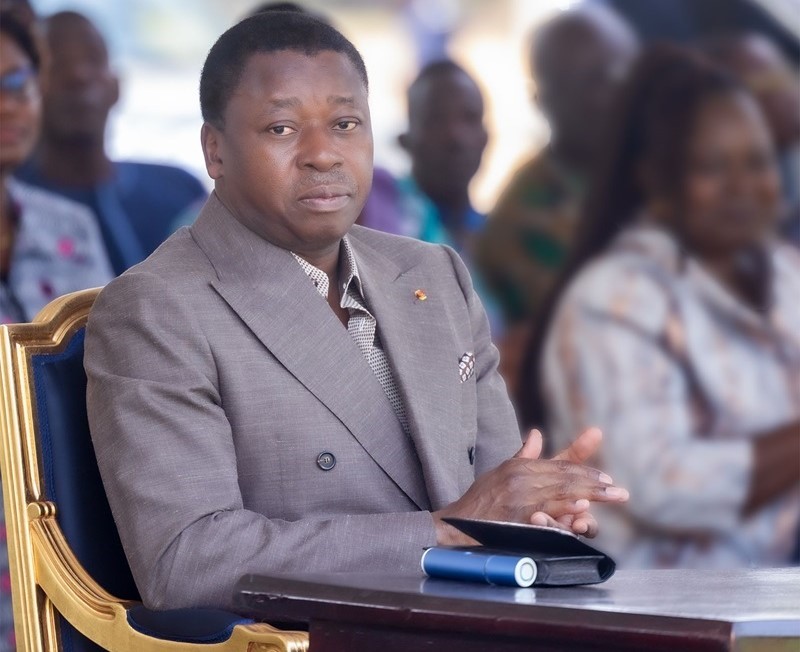
Lumen Valley specifically targets rural youth to provide them with essential skills and opportunities for a brighter future. Father Etienne Boudet, the project's promoter, emphasized the significance of this endeavor: "The success of this project shows us that Togolese youth are at the service of the Nation. And at no time has the President of the Republic authorized me to doubt youth, even in difficult times. This is a very important lesson in my life as a priest."
Nestled within the Djamdé nature reserve at 500 m altitude and approximately 20 kilometers from Kara town, Lumen Valley is designed as a multifunctional ecosystem. The facility has spaces for entrepreneurial training, incubators for innovative ideas, spiritual retreats, and various resourcing activities. It also has conference rooms, workshops, dormitories, villas, and a swimming pool—all built using local materials such as stone and straw.
Lire aussi:
Belgium Takes Steps to Boost Trade with Togo
Belgian exports to Togo reached €58 million in 2023, as reported by Manuella Santos, the Togolese minister responsible for investment promotion. This figure was disclosed during a recent prospecting mission aimed at attracting Belgian investors to Togo.
The imports from Belgium are primarily composed of manufactured goods and technology. According to Minister Santos, “This figure and the products concerned testify to the attractiveness of Togo, where a favorable business environment has developed thanks to reforms designed to encourage investment and stimulate strategic sectors.”
In contrast, Togo's exports to Belgium totaled €4.6 million over the year reviewed. They primarily consisted of agricultural products, highlighting a notable trade imbalance between the two nations.
To bolster trade with Togo, Belgian economic operators collaborated with Togolese authorities during the mission to identify new investment opportunities and lay the groundwork for future partnerships. Key sectors targeted for collaboration included agriculture, sanitation, infrastructure, and energy.
Belgium's ambassador to Togo, Sandrine Platteau, who is based in Cotonou, Benin, expressed optimism regarding the potential for bilateral collaboration. She noted that Belgian companies are increasingly interested in Togo due to its strategic position in West Africa.
Esaïe Edoh
Togo Ranks Fifth in AU Agenda 2063 Implementation
Togo ranks fifth among countries implementing the African Union's Agenda 2063, with a score of 60%. The Mo Ibrahim Foundation disclosed the ranking in its latest report.
This AU Agenda 2063 is a strategic framework aimed at transforming Africa. It focuses on seven aspirations and 20 objectives designed to enhance living standards, promote education, and establish sustainable economies.
In the rankings, Togo follows Rwanda (64%), Ethiopia (63%), Senegal (63%), and Zimbabwe (61%). In West Africa, Togo outperforms its neighbors, including Côte d'Ivoire (49%), Burkina Faso (46%), and Ghana (46%).
The Agenda 2063’s goals include improving citizens' living conditions, ensuring quality education and healthcare, creating jobs, and promoting modern agriculture. It also emphasizes the blue economy to foster growth, encourages sustainable communities in response to climate change, and aims to establish strong financial institutions across the continent.
Togo: Yoto 1 Municipality Needs CFA4 Billion for New Strategy to Fight Climate Change
Togo’s Yoto 1 municipality needs CFA4.2 billion to address the impacts of climate change. The municipality needs the money to implement its Plan Communal d'Adaptation au Changement Climatique (PCACC), a five-year strategy approved last week by the local government.
The plan primarily aims to make Yoto 1 more resilient to climate change and related challenges. The strategy has three key axes.
The first focuses on bolstering the commune's institutional, human, technical, and material capacities. Under this axis, Yoto 1 will get the necessary resources to tackle the escalating challenges posed by climate change while also training local teams to manage these impacts more effectively.
The second component emphasizes actionable measures in the field. These operational initiatives will involve direct local interventions, including efforts to manage natural resources and safeguard vulnerable areas that are particularly susceptible to climatic risks.
The third and last component covers fund mobilization. Yoto 1 wants to secure funds to support its climate initiatives. It plans to raise the money mainly from donors and partnerships.
This adaptation plan is part of the broader Togo Coastal Communities Climate Change Resilience Project (R4C-Togo), which is financed by the Global Environment Facility (GEF) through the Food and Agriculture Organization of the United Nations (FAO). The Office de développement et d'exploitation forestière (ODEF) is also involved in its implementation.
The successful execution of the strategy will significantly help locals, making them less vulnerable to climate change. Yoto 1’s Mayor, Amégnonan Kossi, has called for active participation and support from local communities to ensure the project's success.
Togo-Burkina Faso: Tax Agencies Explore Ways to Bolster Cooperation
Togo and Burkina Faso are set to enhance their cooperation in the tax sector, building on existing ties in customs. The heads of both countries’ tax authorities recently discussed the ambition while meeting in Lomé, Togo’s capital.
During the talks, Philippe Tchodie, head of Togo’s tax authority (OTR), and his counterpart from Burkina Faso, Eliane Djiguemde-Ouedraogo, explored ways to partner in taxation, focusing on providing technical support for strategic projects in Burkina Faso. They emphasized the importance of harmonizing tax systems across the region.
This collaboration aims to strengthen both countries' tax frameworks by sharing expertise and adopting best practices. In an increasingly globalized world, such cooperation is vital for optimizing revenue collection and combating tax evasion effectively. Tchodie stated, “No country can be self-sufficient in the context of globalization of tax systems.”
The fiscal partnership could also bolster trade relations between Togo and Burkina Faso. Burkina Faso is currently one of Togo's key economic partners, accounting for 8.4% of Togo's exports in the last quarter of 2023, according to the National Institute of Statistics and Economic Studies (INSEED).
Esaïe Edoh
Togo to Host AI-Focused Major Event Next Week
Togo will host a series of meetings on Artificial Intelligence (AI) next week. Scheduled to take place on November 13, 14, and 15, the meetings are organized by the Ministry of Digital Economy and Transformation in partnership with Agence Togo Digital (ATD). "Around Artificial Intelligence" is the theme of the event, which will gather local and international stakeholders from the public and private sectors and civil society to discuss the opportunities and challenges posed by AI.
The agenda includes co-creation sessions featuring experts who will share AI strategies from countries like Singapore, Rwanda, and Ghana. Additionally, the event will host the 5th edition of IndabaX, organized by the Togolese Community for Artificial Intelligence (COTIA), which will showcase innovations in AI through hands-on workshops on machine learning. Panel discussions will cover various topics such as AI governance, cybersecurity, and experiences from other countries regarding their AI strategies.
This initiative is part of ongoing efforts by the Ministry and its partners to develop a comprehensive AI strategy for Togo, adapting to the significant changes that AI technology brings globally.
Ayi Renaud Dossavi
After Visiting Niger, Port of Lomé Delegation Promotes Its Services in Mali
The Port Autonome de Lomé (PAL) is committed to getting closer to economic operators in Sahelian countries. A delegation from the platform is undertaking a promotional visit in Bamako, Mali. The delegation, which arrived in the Malian capital on November 6, was also in Niamey, Niger, last month.
In Mali, the Togolese delegation met with local economic players, including transporters, importers, exporters, and those in the textile industry. They communicated to these stakeholders the PAL’s new measures to ease ande boost trade with members of the Alliance of Sahel States (AES).
? Coopération entre le Togo et le Mali : Une délégation du Port Autonome de Lomé en mission promotionnelle au Mali #Portdelome #promotion #mission #Mali #bamako #visite #echange #economie #Togo #echange@MaritimeTg @maritimafrica pic.twitter.com/FQj71eAWht
— Port Autonome de Lomé ? ⚓ ?︎ ?? ?? (@portdelome) November 7, 2024
During the visit, the delegation also presented recent reforms introduced at the PAL to improve efficiency and attractiveness as a transit hub for landlocked countries. They also listened to the concerns and challenges of Malian operators who utilize the Port of Lomé, as understanding and addressing these needs is crucial for Togo to solidify trade with its Sahelian partners.
To further ease transit through Lomé, PAL is planning additional measures tailored to the requirements of Sahelian operators. By increasing cooperation with AES countries, Togo aims to position the Port of Lomé as a key access point for the Sahel region to international markets.
Esaïe Edoh
Made-in-Togo Rice Promoted at China International Import Expo
Togolese rice is being promoted at the China International Import Expo (CIIE), for the seventh consecutive year. This year, the Expo takes place in Shanghai from November 5 to 10.
The Togolese delegation, led by the Togo Chamber of Commerce and Industry (CCI-Togo), is promoting three specific varieties of Togolese rice: S-Baika, Chapeau Vert, and red rice from the Atakora mountains in Kpalimé. According to CCI-Togo, these varieties highlight the unique qualities of Togolese agriculture.
The Togolese delegation is there to forge strategic partnerships, in line with the country’s ambition to enhance Togo’s rice production and elevate its profile, both domestically and internationally. The move also aligns with the national rice development strategy, particularly through the Projet d'Appui à la Valorisation du Riz Togolais (PAVRIT). This program focuses on boosting local rice production, processing, and marketing.
To enrich the experience of Togolese stakeholders in the rice industry, CCI-Togo has organized activities that include visits to rice fields, processing plants, and packaging facilities in China. These excursions aim to facilitate knowledge transfer and allow Togolese producers to learn from advanced Chinese practices and technologies. In addition, B2B meetings will be held to foster exchanges between Togolese and Chinese businesses, potentially leading to new partnerships.
Krystel Dicoh, a commissioner at CCI-Togo, emphasized that the CIIE is a significant opportunity for Togo. She stated that the event provides a platform to promote Togolese products and attract investment in the agricultural sector.
Esaïe Edoh
Lire aussi:
Togo: Zouréhatou Kassah-Traoré Takes Office as Governor of Grand-Lomé District
Zouréhatou Kassah-Traoré, former minister of infrastructure and transport, was sworn in as Governor of the Autonomous District of Grand-Lomé (DAGL) on November 6, 2024. The ceremony, attended by numerous political and administrative figures, marked the official start of her tenure following her appointment by the Council of Ministers in August.
Minister Hodabalo outlined Kassah-Traoré's responsibilities, stating: "You are the head of the autonomous district, and you coordinate, under the authority of the sectoral ministers, the deconcentrated services of the district's civil administrations." He emphasized her role as "the representative of the State, of the central power" in the 425.6 km² territory.
The DAGL, established by law on June 26, 2009, encompasses 13 communes in southern Togo (Commune Agoe-Nyivé 1, Commune Agoe-Nyivé 2, Commune Agoe-Nyivé 3, Commune Agoe-Nyivé 4, Commune Agoe-Nyivé 5, Commune Agoe-Nyivé 6, Commune du Golfe 1, Commune du Golfe 2, Commune du Golfe 3, Commune du Golfe 4, Commune Golfe 5, Commune du Golfe 6, Commune du Golfe 7). The district also serves as the local authority representing Lomé as a whole.
With a population exceeding 2 million, the Autonomous District of Grand-Lomé is a significant demographic and economic hub. It accounts for 72% of national consumption according to available statistics.
Ayi Renaud Dossavi


